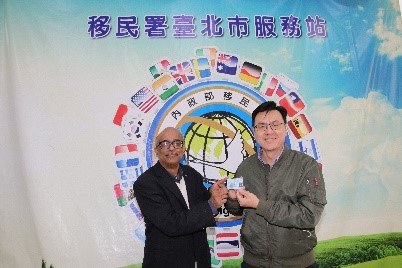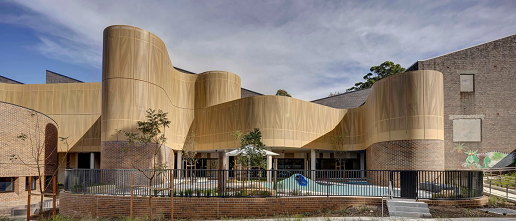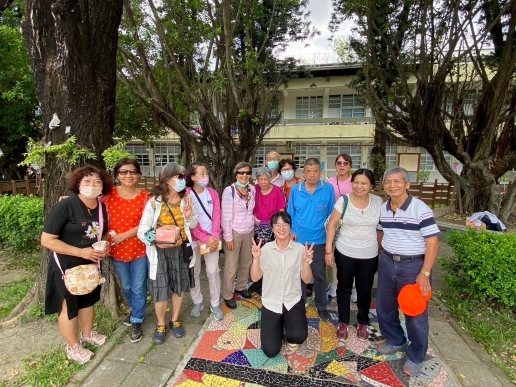Professor CHATTOPADHYAY SUROJIT, who is a Ph.D. in physics from India. His students call him SUR. Nanotechnology is his line of work. Nanomaterials that can be used for cancer imaging and treatment as well as the conversion of various light wavelengths into electric currents are among the topics of his research. Using nanoparticles as an example, it is possible to eliminate cancer cells by directly implanting nanomaterials with chemical compounds into cancer cells and burning them with laser beams. He developed a light sensor for infrared conversion current after researching nanomaterials. The leading international publication "Nano Energy" released a study on the nanomaterials.
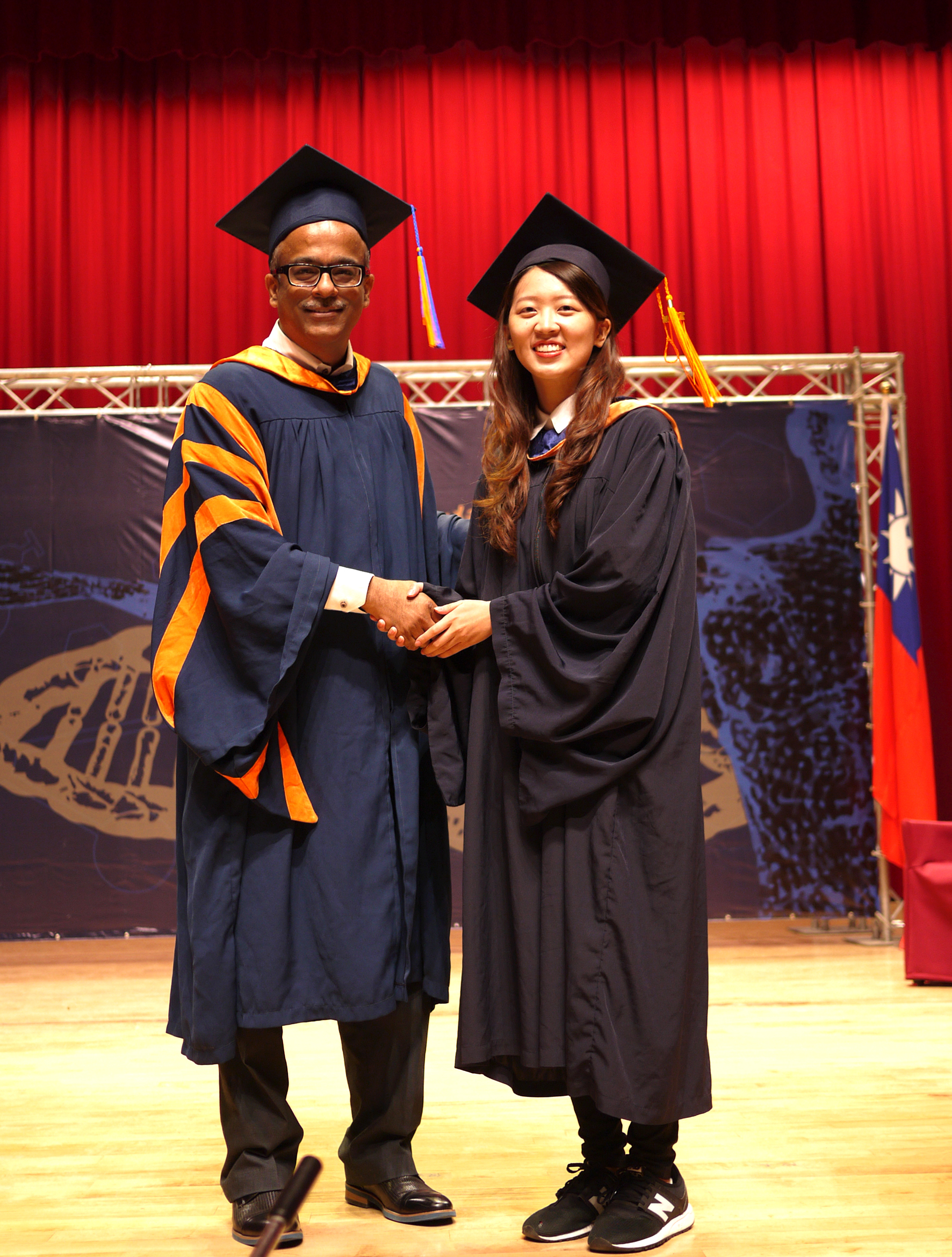
Professor SUR and the student Photo provided by National Immigration Agency (Taipei City Service Center)
In Taiwan, SUR has received two innovation patents. He was an instructor at Institute of Biphotonics of National Yang Ming Chiao Tung University. He received the distinction of exceptional instructor for the whole of his teaching period. SUR applied for the Plum Blossom Card, a permanent residence permit for foreigners, earlier this year as a "senior professional talent."
SUR received his degree from the University of Calcutta in India, and solid-state physics is his primary area of study. On the advice of a friend, SUR came to National Taiwan University in 1989 to conduct postdoctoral research. Since 1997, SUR has been a professor at National Yang Ming University. National Yang Ming Chiao Tung University has undergone restructuring since then. He is currently a distinguished professor at the Institute of Biomedical Optoelectronics, where his areas of expertise include cancer imaging, toxicity sensing and detection, biochemical medicine research, and photoelectric sensors made from nanomaterials with energy applications.

Professor SUR with his child who goes to school in Taiwan Photo provided by National Immigration Agency (Taipei City Service Center)
According to the head (林澤謙) of National Immigration Agency (Taipei City Service Center), the government offers a variety of application processes to make it easier for foreign professionals to gain residence and permanent residence in Taiwan in an effort to draw them here and increase Taiwan's competitiveness internationally. The National Development Council revised the Law on the Recruitment and Employment of Foreign Professionals and further loosened the time limit of one to two years for foreign (specified) professionals who have earned a master's degree or higher in my country to apply for permanent residence in the hope of improving the working and living conditions for foreign professionals.
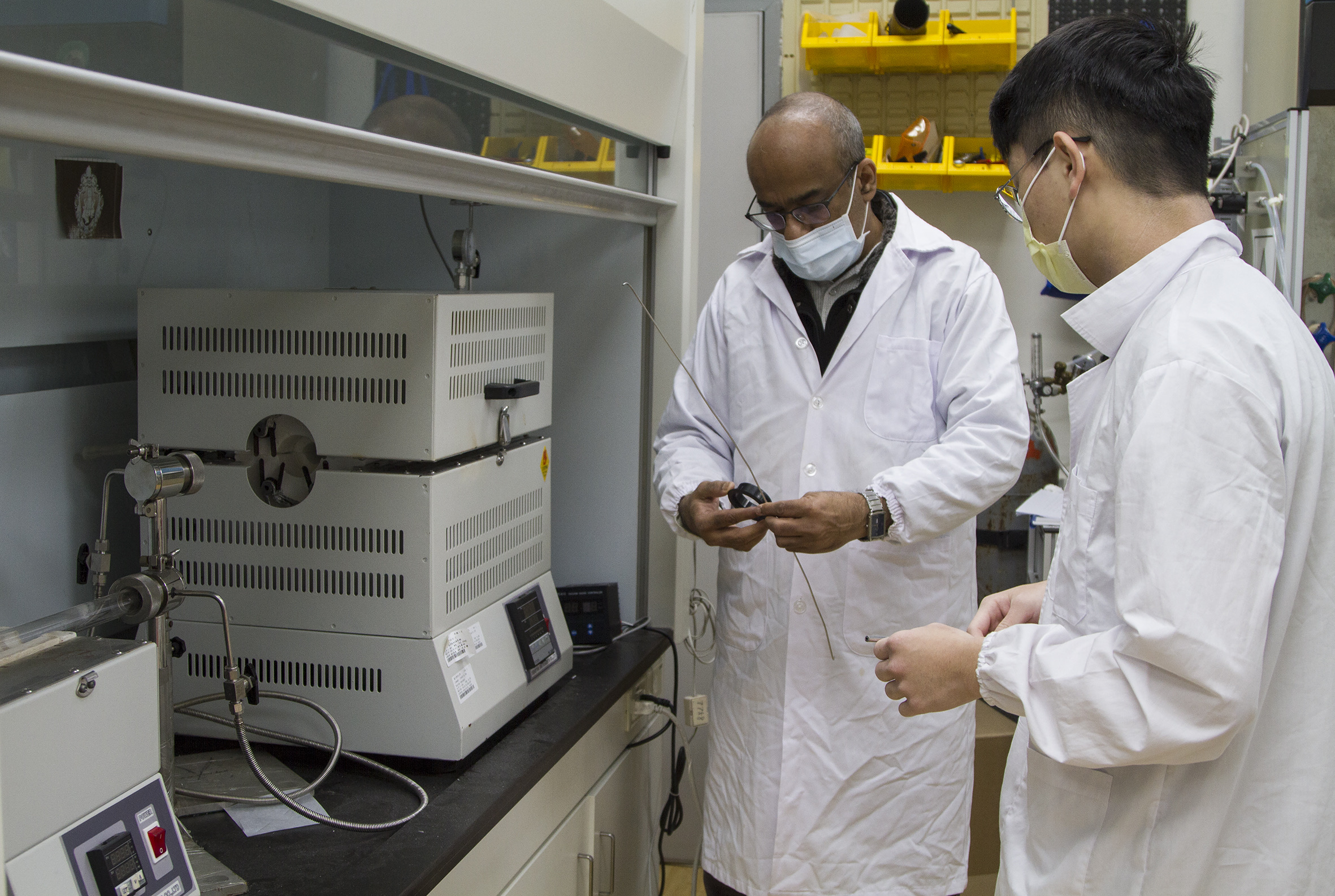
Professor SUR at work Photo provided by National Immigration Agency (Taipei City Service Center)

